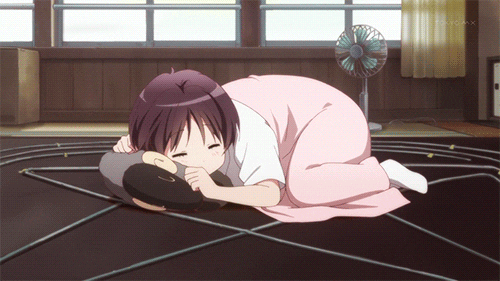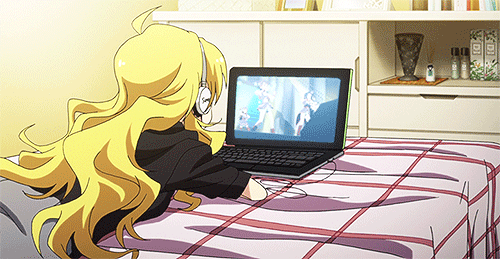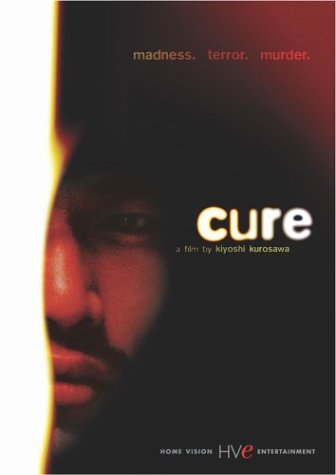Pay attention, even to trifles. –Miyamoto Musashi
You remember what you give your attention to. After all, you can’t remember what you didn’t observe or experience! This seems like common sense, but consider the implications against a world where we cannot give our attention to anything for any length of time.
Gloria Mark researches attention. Since 2004, her research, and that of others, has seen a decline in our ability to pay attention. In 2004, people averaged 150 seconds before switching their attention to another screen. In 2012, this declined to 75 seconds. From 2016-2021, attention has decreased to 45-50 seconds (Mark, 2023). Even as you read this, you will likely feel your mind wandering: to something else on your phone in most instances.
Many people don’t see this as a problem. After all, jobs require multitasking! Multitasking, however, isn’t possible. To use a computer analogy, our minds are single-thread processors: they can only do one task at a time. They can be interrupted to process a different task but at a cost. Task switching hurts performance. It can take up to 20-30 minutes to settle back into focus on the original task. Task switching increases your mental load. According to Mark (2023). “Thinking about one task while doing another increases the mental load because people are using additional cognitive resources not only to do the current task but also to keep the other task in mind.” Both tasks suffer. Finally, “higher multitasking is positively correlated with higher self-reported perceived stress. In fact, the faster, the attention-switching between devices, the higher the stress…”
 Each day, we awake with a certain amount of cognitive resources. They can be restored to a degree by mild distractions, such as playing a light video game, or by taking walks and exercising. Even with these, your resources will decline throughout the day. The mind gets tired. As we get tired, attention wanes, increasing your level of distraction. Have you woke up one morning and remember little about the previous day? That is because of depleted cognitive resources combining with the general lack of focus we all have.
Each day, we awake with a certain amount of cognitive resources. They can be restored to a degree by mild distractions, such as playing a light video game, or by taking walks and exercising. Even with these, your resources will decline throughout the day. The mind gets tired. As we get tired, attention wanes, increasing your level of distraction. Have you woke up one morning and remember little about the previous day? That is because of depleted cognitive resources combining with the general lack of focus we all have.
Okay, so take this and add it to the fact that life is what we pay attention to. If we can’t pay attention to anything for any period of time, life becomes fragmented and stressful, which feeds back into distraction. If you don’t focus on anything, you miss out on life. Short attention spans prevent us from delving deep into living. We can’t walk in nature without listening to podcasts or music or taking photos or answering messages. We can’t spend time with loved ones because we are too busy futzing around on our phones, addressing people who aren’t with us right now–most of which are strangers.
Life has become an existence of staring at screens (Mark, 2023):
In a study where we tracked computer and phone usage among college students for all their wakings hours, we found that they checked social media on average 118 times a day. The most frequent social media checkers (the top quarter of our sample) checked social media sits on average 237 times a day, over six times more often than the less frequent checkers in the bottom quarter of our sample (averaging 39 times a day).
Consider this level of distraction. On average, college students check their social media accounts every 8 minutes. Can anyone focus on life when a device pulls attention so often? How can you spend time with friends, or read a book, or draw, with so many pulls? Remember too that it takes the mind around 20 minutes to settle back into a task, but at 8 minutes, the mind never has a chance to settle into a task. And this involves only phones. Let’s add in all types of screens (Mark, 2023):
Nielsen reports that Americans spend on average five hours and thirty minutes daily of screen time on their computers, tablets, and phones. This average is based on all Americans, all ages, and not just people who use computers in their jobs. But what is really astonishing is that when we add in the time watching other media like TV and films to this, then we see that our attention is fixated on some form of screen, in some type of mediated environment for nearly ten hours a day.
Averages aren’t as useful as medians because there’s always heavy users who skew averages, but as Mark writes, we are attached to some sort of screen for 10 hours every day. Life has become screen staring.
My initial reaction is to reduce my own screen time. I’m not a social media user, so the pull is light on me, but I use computers for most of my hobbies and for entertainment. We have to stop and ask, is all this screen time a negative thing? Is our decreased attention span a problem? After all, screens provide us with unprecedented access to information, work possibilities, culture, and other goods. However, life is what we give our attention to. The problem of decreased, fragmented attention damages our ability to relate to others, enjoy pleasures that require focus–such as reading and art–, and otherwise pay attention to living. We can’t get away from screens, nor should we want to, but we ought to find a balance.
How to Get Back Your Attention

Our brains have the ability to change and adopt based on how we use them. Called neuroplasticity, every brain has the ability to rewire itself with consistent, disciplined training. As Edward Hallowell, who helps treat people with ADHD, told U.S. News (2017): “because of its neuroplasticity, the life of brains can be improved or destroyed based on how you manage it.”
How you use your brain trains it. If you check your phone every 8 minutes, your brain will trains to make that more efficient on its resources. If you read a book with deep focus for hours at a time, your brain will morph to make that more efficient. However, training your mind takes time and patience. It is hard. As Yamaga Soko wrote:
Generally speaking, a man of mettle does not relax his discipline because of distraction, and does not become lazy In his conduct because of obscurity.
Yamaga points to the key to training: you have to want it for internal reasons. External motivation can’t drive you over the long term as much as your own sense of purpose. You can’t become lazy because people don’t notice your work because you know how much you work. To rewire your brain so you can pay attention to life and all its trifles, you have to do the work with patience.
But what is the work?
How to Rewire your Brain for Focus

What I’m about to share comes from the studies I’ve read and my own experiences. I struggle with focus like everyone else. The mind can be chaotic, but chaos can be treated with discipline and calm. As Sun Tzu wrote: “He confronts chaos with discipline; he treats tumult with calm. This is Mastery of Mind.” What I’m going to suggest are actions I’ve done; they aren’t easy. Again, it takes patience and time to change your brain.
- Meditate daily.
Meditation decreases stress and trains focus. Meditation isn’t easy, especially if you’ve never done it before. My mind still wanders despite meditating most days for the past 15 years. Meditation only needs to take 5-10 minutes every day to begin to shift your brain.
- Be disciplined.
Discipline centers on consistency, of doing your work regardless of how you feel. Fortunately, doing something just 3 times a week can be called a habit. I like to block schedule my days. I take it a bit extreme, which may not work for you. I schedule my tasks and free time in time blocks. My typical day is something like this:
7:00 am. Wake up, shower, get tea or coffee.
7:30 am. Journal.
8:00 am. Breakfast, answer emails.
9:00 am. Head to work.
6:15 pm. Exercise.
6:30 pm. Dinner.
7:00 pm. Write.
8:30 pm. Draw or play video games.
10:00 pm. Read.
11pm or 12am. Sleep.
I add flex time to the schedule, but this is the general pattern. Some days I reduce my writing time or drop drawing and reading for playing video games or watching anime. A block schedule keeps me disciplined and reduces the mental energy of figuring out how to best use my time each day.
- Read physical books.
Reading physical books, like meditation, trains the mind to focus. Many studies suggest physical books help with information retention and focus. At the least, you don’t have the temptation to switch apps. Books condense information and experiences in ways no other medium achieves. It can take years of research and experience to write a book, but only 8 hours to read that book. Not even film can achieve this density of information.
- Lose your phone.
I don’t mean lose your phone for real, but “forget it” in a different room or at home when you take a walk. Don’t keep your phone with you every hour of the day. Remove the temptation to check it every 8 minutes. Over time, this will reduce the pull your phone has on your focus until it becomes a tool again instead of you being a tool for social media profits.
- Quit social media.
Or at least reduce your participation. Social media steals your attention, your life, so the companies can make profit from that attention. Social media wants to keep you distracted and on their apps because the more time they steal from you, the more profit they can collect from selling your life to advertisers.
Conclusion
What you give your attention to becomes your life. If your attention is fragmented, so is your life. If your attention is stolen by social media, phones, people, and other things, your life has been stolen. Once a moment passes, it’s gone. Fortunately, you can choose what to place your attention upon, and with training, take back more of your life. We will never be free of distractions. While I wrote this article, distractions kept pulling me away. However, you can work to minimize them so you can focus with intention instead of bouncing on the whims of others.
References
Mark, Gloria (2023) Attention Span. Toronto, Canada: Hanover Square Press.
Reynolds, Jennifer Lee (2017) Yes, the ADHD Brain Can be Trained to Improve. U.S. News. https://health.usnews.com/health-care/patient-advice/articles/2017-12-27/yes-the-adhd-brain-can-be-trained-to-improve




Regarding screen time, even the concept can be subjective. Like what if someone’s using their screens for productive reasons at a time? (i.e. working at an art project via Adobe)
Plus I blame the whole commercialized ad-tech industry for what they’ve done to hijack people’s attention and treating people as “consumers,” not human beings.
It all depends on how you use that screen time. I’m part of a mahjong club and while we all talk online on Discord, play mahjong online against each other and share memes, we actually meet up in person to do offline events. I will always argue that if online screen time with friends doesn’t translate to quality offline time with said friends (or some face-to-face video calls if not at all possible), then it’s time to ask questions.
You’re right. How you use screens matters. Too often we use screens to escape and avoid our problems.
You make a good point about offline time. People who live in rural areas may struggle more with this: often there’s fewer people who share your interests. Travel distances also become a factor too. So in this regard, screens are better than nothing.